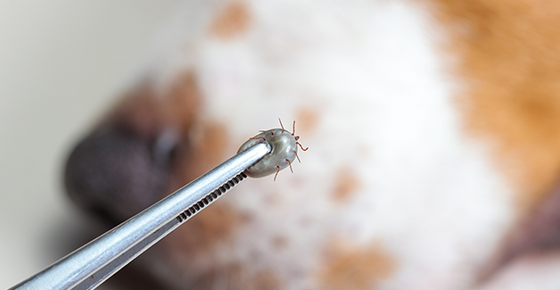
There are several options for protecting dogs against canine Lyme disease. One option is vaccination, which may be the best choice for pets who live in an endemic area. Annual vaccination is an affordable means of protecting pets against this disease, which can have serious health implications. Some dogs that are affected by canine Lyme disease are never fully “free” from this disease and may continue to exhibit symptoms even with treatment. Vaccination prior to infection provides the best possible outcome. If a vaccine is administered, a booster is necessary two to three weeks after the initial vaccine; then annual booster immunizations are recommended.
If your adult dog has never been vaccinated against Lyme disease, it is important to first test to see if your dog has been exposed to Lyme disease. This test is often performed at the same time that a dog is being tested for heart worms as there is a test kit that checks for both; results are available within 15 minutes of testing. If the test is positive, your veterinarian will recommend a follow-up test at the reference laboratory to see if there is an active infection.
Without proactive treatment, most dogs will eventually develop serious kidney problems and, in many cases, renal failure. Symptoms of renal failure include vomiting, diarrhea, lack of appetite, weight loss, increased urination and thirst at first, then it may change to not drinking enough. Even with treatment, however, not all joint pain symptoms may resolve. In fact, some pets continue to experience pain even after bacteria is eradicated from the system. Consequently, prevention through vaccination is important.
Sources:
Centers of Disease Control and Prevention. Reported Lyme disease cases by state, 1993-2007.
J. Lidicker MA et al, Lyme Disease Cases in the United States Projected Through 2012: Time Series Model Identification and Forecasts of the Federal CDC Data. World International Lyme Disease Emergency Rescue (WILDER) Network, Inc, Published 9/11/2005.

